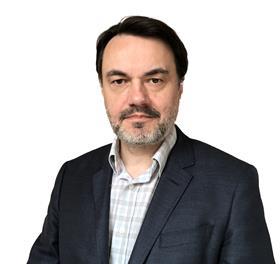
In his talk he recalled how a professor at university had cautioned him on the value of predictions. “Replace the word ‘forecast’ with the word ‘gamble’ and you’ll think about it very differently,” Robertson told delegates.
That sage advice sprang back to mind recently as a result of the disastrous mini-Budget (p18). As many have observed over the past couple of weeks, chancellor Kwasi Kwarteng provoked such a massively negative reaction from the markets not entirely because of the actual policies outlined in his blue pamphlet, but because he sidelined the Office for Budget Responsibility (OBR).
In dismissing the OBR’s diligent calculations, Kwarteng threw away the fig leaf offered by their forecasts. He was revealed as a naked gambler, and the result was great alarm.
The current economic situation also makes it plain that our own notions about what will happen in our businesses are also largely gambles and guesses. How many firms working in property had a war in Ukraine, high inflation, a plummeting pound, the prospect of Liz Truss as PM and a fast-vanishing mortgage market in their thinking for 2022? Not many, I’d wager.
But despite the knowledge that forecasts are subject to the whims of fate, we cannot simply give up and stop making plans. All of us have to do our best to shape our destinies, rather than let circumstances carry us along like leaves in the wind.
Which reminds me of another automotive encounter, with Jean-Philippe Hermine, who was director of environmental strategy at Renault when I met him about a decade ago.
Hermine cited the common observation that you can’t manage what you don’t measure, but chose – perhaps in line with his native French grammar – to say it the other way around: what you’re not measuring, you’re not managing.
Tasked with cutting Renault’s environmental impact, he had focused on the importance of gathering hard data to fuel better decisions – and better forecasts “because there is no progress if you don’t know what waste you have, or where it is”. At the time, most car makers were not looking at all closely at what went in their skips. Hermine’s project to count up the cost of waste proved highly illuminating, and led to huge change in the way the firm ran its global factories.
The same lack of attention to waste is still pretty prevalent in the construction sector today. And property managers still find themselves lacking in all sorts of critical business data, such as office occupancy rates pre- and post-pandemic.
The lesson in all this is that forecasting remains, essentially, an impossible task. We are all gamblers when we make business plans.
But there is a difference between the reckless gambler who throws his chips down and hopes to bluff a victory and the gambler who studies the odds, looks carefully for signs of weakness and strength and makes a measured decision.
Information is the difference between the two ways of making a bet – as Kwarteng really ought to have known.
So as we all square up to a future of increasing uncertainty, with so much around us described as unprecedented and unforeseen, we should assess where we stand on the spectrum.